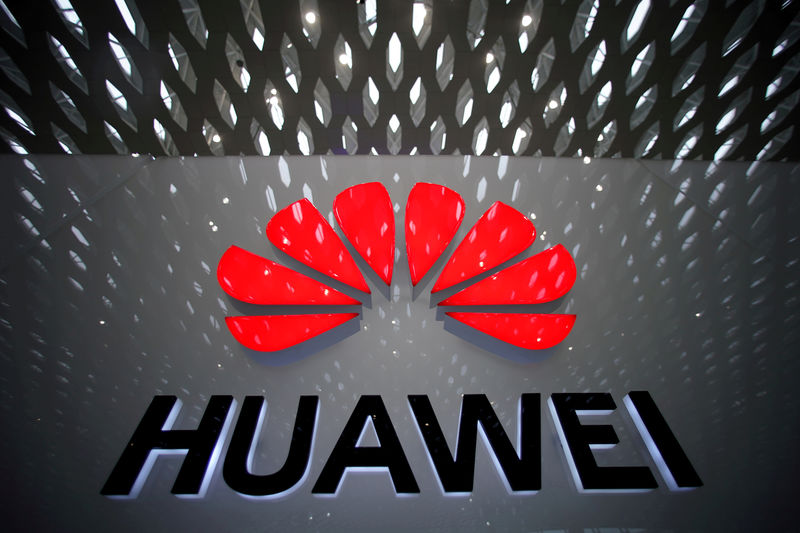By Alexandra Alper and David Shepardson
(Reuters) - The Trump administration on Wednesday gave Huawei its second reprieve this week, allowing some suppliers to restart sales to the Chinese telecoms giant after it was placed on a trade black list over national security concerns six months ago.
The Commerce Department said it has begun issuing licenses for some companies to sell goods to Huawei, expanding the company's supplier base and providing long-awaited clarity to the industry that once sold it billions of dollars worth of goods.
It was not immediately clear which products had been approved for sale to the world's top telecommunications equipment maker. But Huawei Technologies Co Ltd, also the second-largest smartphone maker, has been anxiously awaiting a license for Alphabet (NASDAQ:GOOGL) Inc's Google to supply its mobile services to new models. Google declined to comment.
A U.S. official said of roughly 300 license requests, about half have been processed. Roughly half of those – or one quarter of the total – have been approved and the rest have been denied.
A different person familiar with the process added that some licenses for sales of cell phone components and non-electronic components were approved.
"The Department is issuing these narrow licenses to authorize limited and specific activities which do not pose a significant risk to the national security or foreign policy interests of the United States," the Commerce Department said in a statement, without providing further detail.
The move came after the Commerce Department renewed the so-called temporary general license for the company for a third time on Monday, extending permission for Huawei to engage in limited transactions to assist U.S. rural network operators.
The goodwill gestures come as the Trump administration is working to sign a phase one trade deal with China to end a tit-for-tat trade war that has roiled markets and hit global growth.
Many China hawks have voiced fears that the administration could relax sanctions on Huawei to appease Beijing and score a win on trade.
Republican Senator Marco Rubio said in a statement the company "poses a clear and growing threat to the economic and national security" of the United States and its allies.
"I strongly believe it's against America's national security interest to grant licenses for U.S exports that sustain or strengthen Huawei," he said, adding that the Commerce Department should inform lawmakers of what licenses were given.
But the Semiconductor Industry Association, a trade group, welcomed the Commerce Department's announcement, saying sales of the non-sensitive items help ensure the competitiveness of U.S. chipmakers, "which is essential to national security."
"We hope license approvals continue to proceed in an appropriate and timely manner," the group added.
The United States has pending cases against Huawei for allegedly stealing American intellectual property and violating Iran sanctions. The administration has also lobbied U.S. allies to keep Huawei out of next-generation 5G telecommunications infrastructure. Huawei denied the allegations.
The Trump administration put Huawei on a trade blacklist, citing national security concerns in May after trade talks broke down. Companies on the list are not allowed to receive shipments of U.S. goods without a special license from the Commerce Department.
But in June, U.S. President Donald Trump said some sales would be allowed to the company, and U.S. officials urged firms to apply for licenses, noting that they would be granted in cases where the items were readily available and did not compromise national security.
But until Wednesday, there had been no responses on the license requests.
Despite the good news, plenty of headwinds remain for Huawei, which is still awaiting rules from the Commerce Department that are expected to bar them from the U.S. telecoms network.

"The White House isn't ready to pull the plug on Huawei because that would do almost as much harm to U.S. companies," said James Lewis, a technology expert with the Washington-based Center for Strategic and International Studies. "But they're keeping it in reserve," he added.